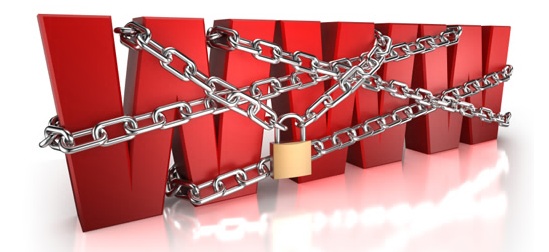The great firewall of ... Pakistan?

A powerful new firewall to censor websites and block mobile communications in Pakistan could be up and running next month, according to the campaigning site Access.
It appears the Pakistani government is enlisting some of the same big tech firms accused of aiding censorship in Libya and Iran and keeping tabs on China's 538 million web users. Pakistan's government claims it will only use the technology to block pornography and anti-Islamic content, but many fear it could become a tool for wider censorship.
Citizens have been outraged by this before. Just a year ago, a huge public outcry over similar plans forced the government to back down. But now, the Pakistan Telecommunication Authority (PTA) is once again pushing ahead with the plans, according to Pakistan's interior minister Rehman Malik on Twitter. "PTA is finalising negotations for acquiring a powerful firewall software to totally block pornographic and blasphemous material," he said.
Censorship through the back door?
On the face of it, there are good reasons to want to stop the spread of content that is offensive to Muslims - not least the deadly riots that broke out over the provocative Innocence of Muslims film in Pakistan and across the Muslim world last year. But the evidence shows that people do not have to have seen so-called blasphemous material to be whipped up by opportunistic rabble-rousers: its very mention is often enough.
Add to this the very real possibility that the technology will be used by the government and Pakistan's powerful, secretive security services to censor other material, and the picture looks worse. There are already plenty of questions around the sites currently blocked by the government (the latest example being US-based Buzzfeed).
Not only is this worrying for Pakistan: if citizens and the media there have to contend with growing censorship, they will have less power to hold their government to account. This move fits into a broader picture, too, where government and corporations across the world are trying to roll back web freedom through the back door with secret agreements and covert tech deals.
It's not too late
The good news is, pressure works. Across the world, citizens have come together to stop deals that would have dramatically restricted freedom of speech and action online - draconian US copyright laws Sopa, Pipa and Acta.
The case of Pakistan need be no different. Unlike China, Pakistan has a vocal and powerful media. Frequently critical of the government, it has time and again played a key role in exposing corruption and bringing down many powerful political players. Successive regimes have tried to silence it and failed.
Now is the moment for Pakistan's media to step up to the plate: to educate citizens about how this new technology may be used and abused, to ask tough questions of the country's leaders, and to make the case for freedom of speech - a freedom that very much serves the media's business interests, as well as those of democracy.
In one sense, the timing could not be better. The unpopular government led by the Pakistan People's party faces elections in just a few weeks' time, so it will be especially sensitive to public pressure and criticism right now. A citizens' outcry has forced the country's leaders to back down on this issue before. With elections looming it seems feasible it could happen again.
Sources: Access, Sana Saleem, Internet World Stats, New York Times, Twitter, BBC, Avaaz, Buzzfeed, Wikipedia, Newsweek Pakistan
